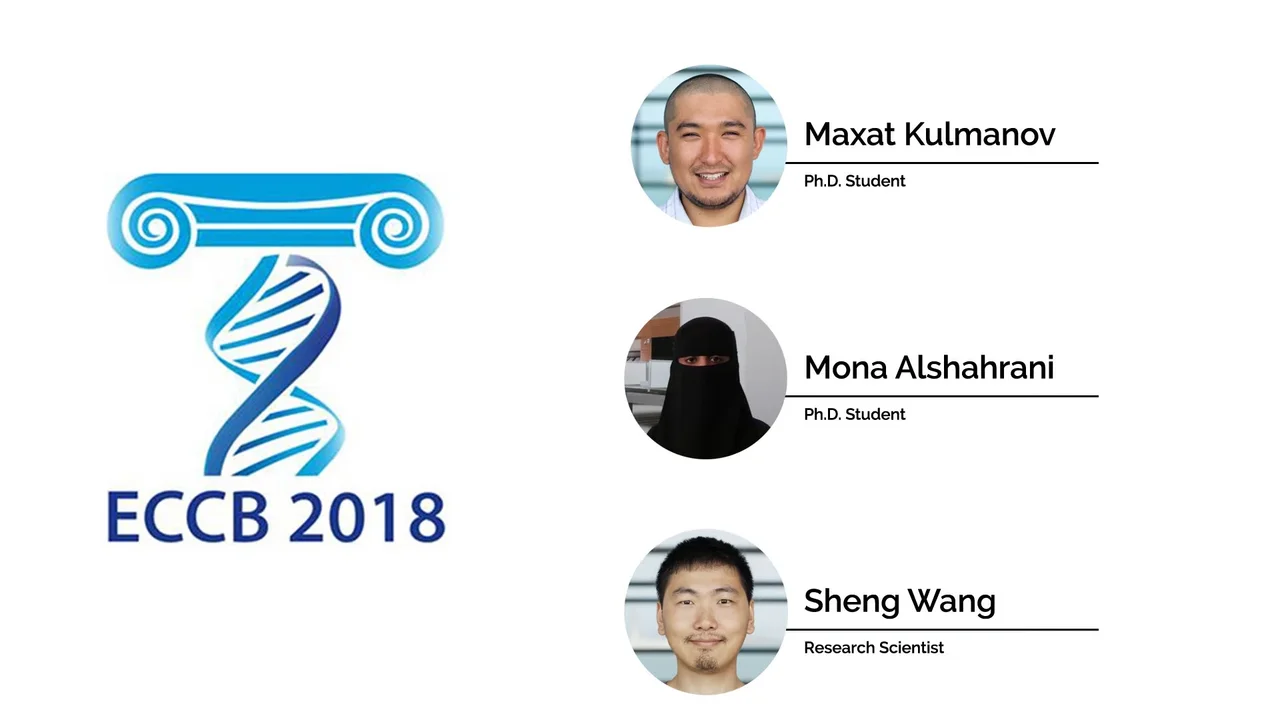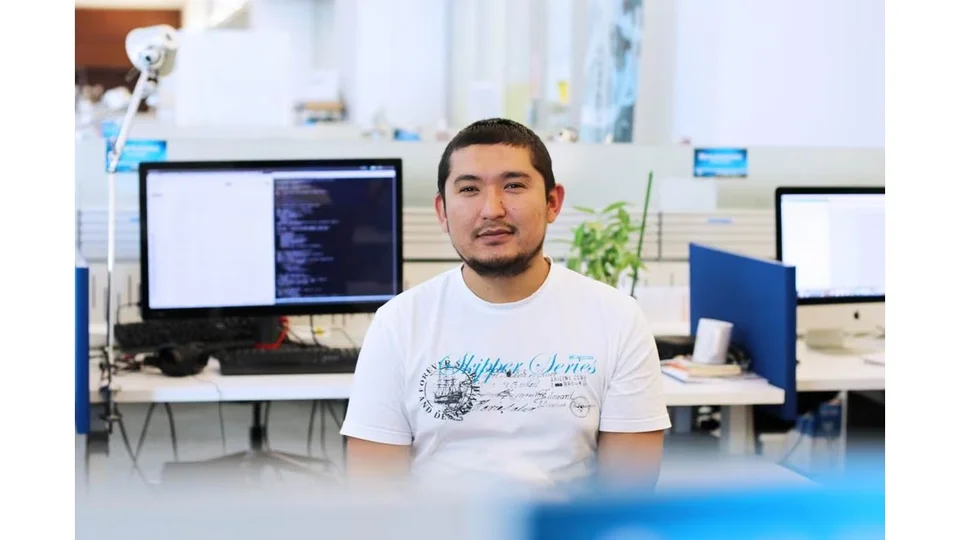
CBRC goes to ECCB 2018
The European Conference on Computational Biology (ECCB) is one of the most important conferences in the field of bioinformatics and computational biology. Held in a different European city annually, this year's conference will take place in the historic city of Athens, Greece on September 8-12, 2018.
About
By Rose Gregorio
The European Conference on Computational Biology (ECCB) is one of the most important conferences in the field of bioinformatics and computational biology. Held in a different European city annually, this year's conference will take place in the historic city of Athens, Greece on September 8-12, 2018.
Ph.D. students Maxat Kulmanov and Mona Alshahrani from the Bio-Ontology Research Group, as well as Research Scientist Sheng Wang from the Structural and Functional Bioinformatics Group will be presenting their work at the conference. Maxat and Mona each received a €300 travel fellowship which will be used to cover parts of their lodging, conference registration, and travel expenses.
Sheng shared that he actually heard about his current research topic, nanopore sequencing, at ECCB 2016. He became interested in this area after several fruitful discussions with experts in this field. He will attend the upcoming conference in order to share his recent findings. "I think that it would be a great chance for me to present my recent breakthrough in nanopore sequencing in this year's ECCB," he said.
Our three delegates look forward to showcasing their work at ECCB 2018. Get to know them a little and find out what they will be presenting.
What is the title of your poster?
An Accurate and Rapid cwDTW Algorithm for Unbalanced Global Mapping in Nanopore Sequencing
What is it about?
cwDTW is a new algorithm for aligning two ultra-long signal sequences based on continuous wavelet Dynamic Time Warping. The proposed new algorithm could be applied to the end-to-end mapping between the raw electrical current signal sequence and the reference expected signal sequence, which serves as the key building block to signal labeling, and the following signal visualization, variant identification and methylation detection. These are the key applications in the 3rd generation nanopore sequencing.
How do you feel about attending ECCB 2018?
The experience of attending ECCB 2016 is really a great pleasure for me in my whole life. I learned a lot, talked a lot, and made a lot of friends there. This time at ECCB 2018, I could show my cutting-edge research breakthrough in nanopore sequencing to all the experts in this field.
What is the title of your poster?
Ontology-Based Validation and Identification of Regulatory Phenotypes
What is it about?
We developed a novel ontology-based method to validate the mutual consistency of function and phenotype annotations. We apply our method to mouse and human annotations, and identify several inconsistencies that can be resolved to improve overall annotation quality. We also apply our method to the rule-based prediction of regulatory phenotypes from functions and demonstrate that we can predict these phenotypes with F_max of up to 0.647.
How do you feel about attending ECCB 2018?
I'm very excited and happy because this is my first conference paper. I hope to get recognized by other researchers and make new connections for future collaborations.
What is the title of your poster?
SmuDGE: Semantic Embeddings for Phenotype-Based Disease Gene Prioritization
What is it about?
SmuDGE is a method that utilizes knowledge graphs features learning to compensate for incompleteness in biological databases. It generates phenotype-based representations for entities that are only indirectly associated with phenotypes through an interaction network. It significantly extends the coverage of phenotype-based methods to all genes in a connected interaction network. It demonstrates a performance that can match or outperform semantic similarity in phenotype-based disease gene prioritization.
How do you feel about attending ECCB 2018?
I feel good. I hope to learn more by attending keynote lectures by world-class scientists and educators in the field of computational biology and medicine.
